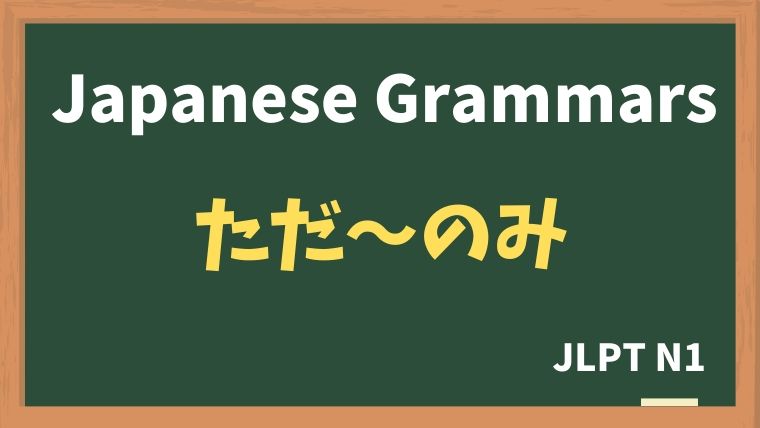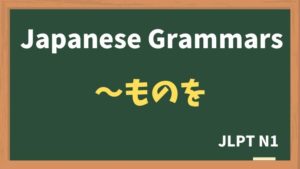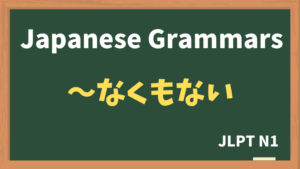
Explanation:ただ〜のみ
fa-check-circleMeaning
"〜だけ / 〜するしかない"
「それ以外にない」ということを表す。
A formal and emphatic way to say "only" or "nothing but." It is often used to highlight that there is no other option, condition, or state except for the one being mentioned. This expression has a somewhat literary or formal tone and is commonly used in written language or in formal speech to emphasize the singularity or exclusivity of an action, condition, or thing.
fa-check-circleForm
ただ + V(辞書形) + のみ
ただ + イAい + のみ
ただ + ナである + のみ
ただ + N(である) + のみ
fa-check-circlePoints
- Emphasis on Exclusivity: "ただ〜のみ" emphasizes that the situation or condition is limited to just one thing, leaving no room for alternatives.
- Formal or Literary Usage: This phrase carries a formal or literary tone, making it less common in casual speech.
- Typically Used with Actions or States: It can be used to refer to actions, states, or objects, emphasizing that there is only one possible course or situation.
fa-check-circleJLPT Level
N1
fa-check-circleNote
① 会話ではあまり使いません。
② 「ただ」は省略する(omit)することができます。
Sample sentenes
今はただ、みんなの無事を祈るのみです。
All I can do now is pray for everyone's safety.
日本語がもっと話せるようになりたければ、ただ練習するのみだ。
If you want to become more fluent in Japanese, the only way is to practice.
僕がやれることは全部やったので、あとはただ結果を待つのみだ。
I've done everything I can, so now all I can do is wait for the results.
昨日の失敗は忘れて、今はただ仕事に専念するのみだ。
I need to forget about yesterday's failure and just focus on my work now.
Vocabulary
| Japanese |
English | |
| 専念する | せんねんする | to concentrate |






